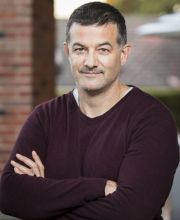| 7. Community This article is an interview with four researchers about the role of community and community-based initiatives in climate adaptation in urban contexts |
| Cooling the Commons pattern deck The Cooling the Commons pattern deck is a website comprising 41 illustrated patterns of ‘cool commons’. Cool commons are publicly accessible cool urban environments that offer an alternative to airconditioned private spaces in cities where heat is compromising liveability. The website is designed as an open resource to facilitate design decisions that defend, protect, and enhance the presence of cool commons. The pattern deck builds upon the research report Cooling Common Spaces in Densifying Urban Environments which explored cool commons of relevance to Landcom’s urban renewal sites and included 5 prototype patterns. The Cooling the Commons pattern deck expands upon that study to offer 5 revised and 36 new patterns for cool commons. As a work of commons-based design it offers an alternative to and makes an intervention into the technical approach to design that dominates urban heat adaptation via for example air-conditioning, green infrastructure and ‘cool roads’. Funded by both UTS and Western Sydney University, the deck demonstrates the importance of collegial, collaboratively partnered research. 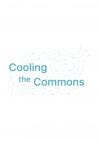
|
| Cultivating the Habits of Coolth This chapter extends upon the book's discussions of habit to the process of adapting to anthropogenically induced global warming. We reveal the role of designed practices, products and infrastructures in habituating urban populations to a changing climate. Our central concern is the ‘world within the world’ design has helped to create. In the rapidly densifying city, atmospheric commons are shaped and reshaped by human design; climate change is lived and felt in hostile heat islands and polluted, particulate-laden city air. Design offers a critical perspective on the dynamics that have shaped the city and organised the civic practices of its inhabitants. This ontological capacity is a second order agency rarely considered in the contexts in which design is most powerfully deployed to shape the materiality of the city. We apply ‘defuturing’ (Fry, 1999) as a critical deconstructive mode of reading to point to the designing relations shaping city atmospheres, infrastructures and modes of habituation. Our focus is the constellation of designing relations inaugurated by cooling technologies. At the same time as answering a primal need, cooling technologies also dehabituate us to the increasingly volatile conditions of our common world. In response, we seek to resuscitate the concept of ‘coolth’ as a critical term describing the experience and sensation of feeling (temperature) cool. We claim that designing for coolth cultivates habits of practice far better attuned to a warming world, recognising that climate-aware modes of dwelling must be both cultivated and habituated by design. 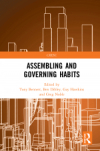
|
| Grounded! COVID-19 and Recovering Postcapitalist Possibility in Place We comment on Bruno Latour's post-COVID futures essay and his book on terrestrial politics with reference to Aotearoa New Zealand and grounded Indigenous politics of place. We seek postcapitalist possibilities in a number of key events of 2020. |
| Cooling Common Spaces in Densifying Urban Environments: A Review of Best Practice and Guide for Western Sydney Renewal In answering the following research question: What design features allow for both comfort and mobility in the hot city, and what design features detract from this? What climate-resilient social practices are these features enabling and disabling? this report develops a new approach to understanding and designing cool cities: cool commons. The report sets out the new conceptual approach of Cool Commons. It moves beyond current technocentric approaches to cool urban futures, recognising that a combination of material, social and institutional strategies are required to support climate adaptation, including community-led adaptive practices. ‘Cool commons’ view the city not as a collection of private spaces, but as an environment for convivial social life. The design challenge is thus to integrate opportunities for respite or coolth across the city, for example, in public spaces that are accessible to all. The report also sets out a methodology for analysing and reporting on the extent of Cool Commons, drawing on the pattern language of architect and mathematician Chris Alexander. It provides a series of sample patterns for Cool Commons that are the foundation for the ‘Cool Commons Pattern Deck’. 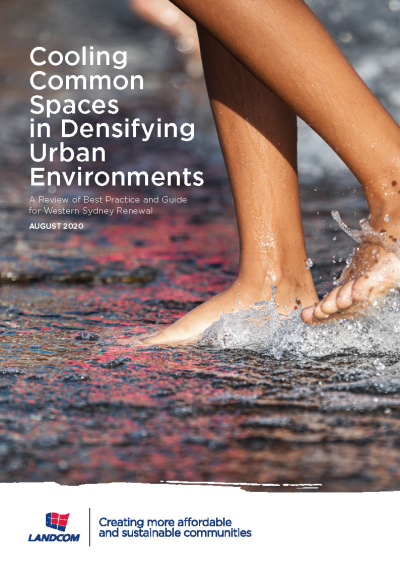 |
| The place of common bond: Can credit unions make place for solidarity economy? About 6,000 financial cooperatives, called credit unions, with more than 103 million members manage over $1 trillion in collective assets in the United States but are largely invisible and seen as inferior to private banks. In contrast to banks that generate profit for outside investors and do not give voice to customers, these not-for-profit institutions have a democratic governance structure and a mission to provide good services to their members. We use diverse economies and critical/feminist GIS approaches to theorize them as noncapitalist alternatives to banks and possible sites of social transformation toward a solidarity economy.
Using the case of cooperative finance in New York City, we analyze spatial patterns, characteristics, and place-making practices of credit unions with different kinds of the common bond, a principle that unites a financial community, and in relation to urban geographies of class and race. We find that credit unions provide a historically proven mechanism for collective resistance to marginalization by racial capitalism and, depending on the common bond type, make place by (1) providing financial inclusion in poor and minority neighborhoods; (2) scaling up solidarity finance through participation of middle classes; and (3) diverting assets from capitalist investment into social reproduction and livelihoods. Credit unions express the racialized wealth of their communities, however, and create spatial exclusions that pose a challenge to postcapitalist movements such as solidarity economy. These findings are applicable to other places marked by segregation and call for further inquiry into possibilities and barriers to solidarity finance. 
|
| Alternative Economies (Revised 2nd edition) This is a revised and updated version of "Alternative Economies" first published in 2009 in the Elsevier Encyclopedia of Human Geography. The article draws on more recent diverse economies scholarship to illustrate a performative, as opposed to a realist, description of "alternativeness". Here alternative is understood in the context of the economy as an ontologically differentiated space, a space that is not organised by a singular logic, capitalist or otherwise. This has profound implications for the theory of change that informs diverse economies scholarly interventions. 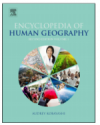
|
| Beyond Business as Usual: A 21st Century Culture of Manufacturing in Australia This report is based on in-depth research with ten manufacturers. It finds that along with operating dynamic and viable businesses these manufacturers are fostering a culture of just and sustainable manufacturing that is helping to tackle the social and environmental challenges of the 21st century.
The manufacturers include public corporations and cooperatives, and range from the privately-owned engineering firm, Varley Group, which is headquartered in the Hunter region and has been operating since 1886 to the not-for-profit social enterprise and clothing manufacturer, The Social Outfit, which was established in Newtown in Sydney in 2014. 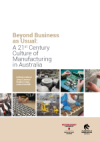
|
| Elävä talous: Yhteisen tulevaisuuden toimintaopas An updated and adapted Finnish language version of Take Back the Economy: An Ethical Guide for Transforming Our Communities by J.K. Gibson-Graham, Jenny Cameron, and Stephen Healy, University of Minnesota Press, 2013.
Click here for the website that can be used in conjunction with the English language version of the book.
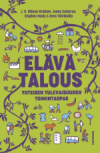
|
| Care-full Community Economies In this era of human-induced environmental crisis, it is widely recognized that we need to foster better ways to sustain life for people and planet. For us – and other scholars drawing on the Community Economies tradition – better worlds begin in recognising the diverse and interconnected ways human communities secure our livelihoods. Community Economies scholarship is a body of theory that evolved from the writings of geographers J.K. Gibson-Graham, which, for more than thirty years, has inspired others (including the three of us) to rethink economy as a space of political possibility. In this chapter we explore some of the common threads between feminist political ecology (FPE) and Community Economies scholarship, highlighting the centrality of care work – women’s care work in particular – in the intellectual and empirical heritage of Community Economies Collective (CEC). 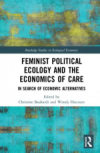
|
| Infrastructures of care: opening up ‘home’ as commons in a hot city What does it mean to be at home in a hot city? One response is to shut our doors
and close ourselves in a cocoon of air-conditioned thermal comfort. As the climate
warms, indoor environments facilitated by technical infrastructures of cooling are
fast becoming the condition around which urban life is shaped. The price we pay for
this response is high: our bodies have become sedentary, patterns of consumption
individualized, and spaces of comfortable mobility and sociality in the city, termed
in this paper as “infrastructures of care,” have declined. Drawing on the findings
of a transdisciplinary pilot study titled Cooling the Commons, this paper proposes
that the production of the home as an enclosed and private space needs to be
rethought as an infrastructure that potentially undermines more social, convivial,
and environmentally sensitive responses to a warming world. The paper asks, what
role might design now play in developing alternative infrastructures of care that start
with the idea of “home” as a distributed proposition? |
| Economic Geography, Manufacturing and Ethical Action in the Anthropocene: A Rejoinder We are thrilled by Vicky Lawson’s deeply appreciative response to the Roepke Lecture and the written article. In her response, Vicky does more than we could ask for by inviting economic geographers to think with us about ways of reworking manufacturing (and other economic activities) that center on care for the well-being of people and of the planet. Vicky goes to the heart of our project by highlighting the importance we place on looking for the ethical openings that arise in the current context of climate change and growing socioeconomic inequality. As she identifies, part of our armory includes tactics of attending to already existing possibilities that are hidden from view and reframing understandings of what an economy is for. |
| Roepke Lecture in Economic Geography—Economic Geography, Manufacturing, and Ethical Action in the Anthropocene In a world beset by the problems of climate change and growing socioeconomic inequality, industrial manufacturing has been implicated as a key driver. In this article we take seriously Roepke’s call for geographic research to intervene in obvious problems and ask can manufacturing contribute to different pathways forward? We reflect on how studies have shifted from positioning manufacturing as a matter of fact (with an emphasis on exposing the exploitative operations of capitalist industrial restructuring) to a matter of concern (especially in advanced economies experiencing the apparent loss of manufacturing). Our intervention is to position manufacturing for the Anthropocene as a matter of care. |
| Public Declaration: Just and Sustainable Manufacturing in Australia This public declaration was one outcome from the Reconfiguring the Enterprise Research Project. It was written and signed by the research team (Katherine Gibson, Stephen Healy, Jenny Cameron and Joanne McNeill) and the participating Australian manufacturers. The declaration was widely distributed, including to state and Federal members of parliament. It has contributed to ongoing discussions about the direction of Australian manufacturing in the 21st century. |
| Infrastructures of Care: Opening up “Home” as Commons in a Hot City What does it mean to be at home in a hot city? One response is to shut our doors and close ourselves in a cocoon of air-conditioned thermal comfort. As the climate warms, indoor environments facilitated by technical infrastructures of cooling are fast becoming the condition around which urban life is shaped. The price we pay for this response is high: our bodies have become sedentary, patterns of consumption individualized, and spaces of comfortable mobility and sociality in the city, termed in this paper as “infrastructures of care,” have declined. Drawing on the findings of a transdisciplinary pilot study titled Cooling the Commons, this paper proposes that the production of the home as an enclosed and private space needs to be rethought as an infrastructure that potentially undermines more social, convivial, and environmentally sensitive responses to a warming world. The paper asks, what role might design now play in developing alternative infrastructures of care that start with the idea of “home” as a distributed proposition? 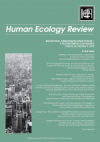
|
| Corporate Enterprise as Commonwealth Deepening ecological crisis alongside a half century of widening inequality and economic instability are evidence that Business as Usual cannot go on. Transformation is required, particularly in the realm of corporate activity, the business of business. Shareholder primacy is a powerful social norm that constrains transformation. It positions publicly traded corporations as compelled by competitive necessity and bound by law to place shareholder returns first. This paper reviews critical legal theory that questions the historical precedence, legal coherence and practical consequence of shareholder primacy in corporate law. I consider Deakin’s (2011) suggestion that it might be more appropriate to think of the corporation as a commons managed for the benefit of multiple parties. In my view Deakin’s conceptualisation might be further elaborated by turning to other traditions in enterprise formation, most notably those that have shaped the cooperative form in Italy and elsewhere. |
| Commoning and the Politics of Solidarity: Transformational Responses to Poverty This paper stages an encounter between Relational Poverty Theory (RPT) and the solidarity economy movement. RPT understands poverty as the dynamic product of economic exploitation, political exclusion and cultural marginalization. The solidarity economy movement can be seen as a transformative political response to these dynamics aiming to replace exploitation with cooperation, exclusion with participation and marginalisation with practices of inclusion. Globally, more than sixty solidarity economy movements are coordinating efforts, developing associative relations between cooperative economic institutions, social justice movements, and one another. While these developments are encouraging, many practitioners are concerned about the movement’s future. Solidarity economy practitioners we encountered in our US-based research were concerned with the movement’s vulnerability to co-optive exploitation or (un)witting perpetuation of the very dynamics of exclusion and marginalisation it seeks to transcend. We take this as evidence of the enduring power of poverty-dynamics and testament to the incisive, critical insights of RPT. However, what remains unanswered is how the solidarity economy might succeed in its own terms? We deploy Gibson-Graham’s theorization of postcapitalist politics to answer this question, charting the movement’s possibilities, specifically how it works by creating and sharing spaces and monetary and non-monetary resources in pursuit of its objectives |
| Basic Income and Post-Capitalist Imaginaries This paper, forthcoming in Arena reflects on the late Zygmunt Bauman's essay on the work ethic published in Arena in 1996. I began this paper the day after Zygmunt died, and took up with his question of what happens to the poor in a world where work disappears. His essay seemed to presage many of the current debates about postcapitalism, new forms of automation, the future of work and the role that basic income may play in a world with less work in the formal economy. In the current moment a life beyond capitalism seems more discernible, either as a post-work utopia or a condition of permanent precarity. In contrast the postcapitalist possibilities that emerge from feminist-inspired diverse economies scholarship, presages a future where we might be more supported to engage in the crucial labours of care and ecological restoration. |
| Commoning Social Life From our atmosphere to the open ocean, from our languages to the rule of law, use without ownership underpins human experience. It is critical to our continued survival beyond the Anthropocene. These resources and properties are ineluctably shared because they are not wholly appropriable; they are used as part of a commons because they cannot be entirely exchanged. They are held in common because they cannot be completely enclosed. This essay is concerned with the use of and care for the commons as an object of inquiry, a practice of all social life, and as the operative condition of intellectual production.The essay continues the ‘Foundational Essays’ series developed by the Institute for Culture and Society on basic concepts and approaches in social enquiry and practice. In the Institute, we treat ‘commoning’ as a key concept of our collective project. 
|
| Community economies and a transformational politics of poverty How can we work to transform our economies so that all can survive well together? In the Millennium declaration, signatories pledged to “spare no effort to free our fellow men, women and children from the abject and dehumanizing conditions of extreme poverty”, eventually resulting in the detailed targets of the Sustainable Development Goals (SDGs). Setting targets is a management strategy which assumes the problem of poverty is primarily a lack of goal-setting, vision, or resource allocation. This is one important aspect of the problem to be sure, and the SDG process has certainly altered resource allocations and produced results. The other part of the problem is transforming the way we do economy more broadly, towards modes of production that care for people and planet more effectively. In our view a first step is recognise that economies are something we construct both through what we do and do not do. The Community Economies Collective is a group of thinkers and writers who work to rethink how we do economy, with a preference for those who are most vulnerable in our world - human and nonhuman. |
| Communism as a Mode of Life This paper is based on a talk I delivered at Rethinking Marxism’s 2013 international conference in conversation with Jodi Dean at a plenary session entitled “Crafting a Conversation on Communism.” I attempt to clear up a point of confusion in Dean’s reading of postcapitalist politics and the work of the Community Economies Collective (of which I am a member) in order to arrive at a point we share in common: the immanent relevance of communism to contemporary politics, as evidenced by Occupy and other events. While Dean reads the Occupy experience as a demonstration of the need to return to the party as an organizational form, I explore the potential of activist research and the solidarity economy for demonstrating communism as a practical, sensible reality in a growing number of communities. These emergent communisms grow in visibility as we develop other ways of representing and valuing communal life as we live it. |
| Saint Francis in Climate-Changing Times: Form of Life, the Highest Poverty, and Postcapitalist Politics This paper considers the relevance of Franciscan monastic practice to contemporary postcapitalist politics in the time of the Anthropocene. Giorgio Agamben’s reflections on the monastic revolution of the eleventh and twelfth centuries explore the different relationships between the rules governing monastic life and materiality, wherein the renunciation of property and the practice of highest poverty give the greatest expression of a collective, monastic form of life. The embodied connection between having a rule and living it contrasts starkly with emergent Church doctrine that introduced a cynical split between the sacred and the material: good or bad, the priest only need say the words. Centuries later, a version of this cynical split seems operative in contemporary “green consumerist” responses to the Anthropocene, amounting to a palliative gesture when what is required is revolutionary transformation. In contrast, this essay considers how contemporary postcapitalist politics, like monasticism, rests upon embodied forms of collective life. |
| Putting Solidarity Economy on the Map Over the past 20 years, the term “solidarity economy” (SE) has come to refer to economic activities that seek to promote overall quality of life within a community, as opposed to prioritizing private profit maximization in a competitive market. The organizations and enterprises comprising the solidarity economy tend to be collectively and democratically run for the benefit of their members. The activities associated with the solidarity economy do not preclude turning a profit (or generating surplus), nor do they necessarily require disengaging entirely from market exchange. But they usually exhibit a substantial alignment with ethical principles of social equity and solidarity, environmental sustainability, and pluralist democracy. Put most simply, there is something we could characterize as non-capitalist about these organizations > |
| Pursuing Happiness: The Politics of Surviving Well Together In this paper we use the concept of surviving well to reframe happiness. |
| Solidarity Economy Divided: A Philadelphia Case Study In debates over post-capitalist politics, growing attention has been paid to the solidarity economy (SE), a framework that draws together diverse practices ranging from co-ops to community gardens. Despite proponents’ commitment to inclusion, racial and class divides suffuse the SE movement. Using qualitative fieldwork and an original SE dataset, this article examines the geospatial composition of the SE within the segregated geography of Philadelphia. We find that though the SE as a whole is widely distributed across the city, it is, with the exception of community gardens, largely absent from poor neighborhoods of color. We also identify SE clusters in racially and economically diverse border areas rather than in predominantly affluent White neighborhoods. Such findings complicate claims about the SE’s emancipatory potential and underscore the need for its realignment towards people of color and the poor. We conclude with examples of how the SE might more fully address racial injustice. |
| Redrawing the Economy: Colombia Report This report details the workshops conducted in Colombia as part of the Redrawing the Economy project. The workshops were conducted by one of the authors of Take Back the Economy, the translators of the Spanish version of Take Back the Economy, artists, and members of community economy initiatives from across Colombia.
Workshops were also conducted in Finland and South Korea, and there is a summary report for the Scholar-Activist Project Award from the Antipode Foundation.
The project also gave rise to the Redrawing the Economy website produced by Kathrin Böhm. 
|
| Redrawing the Economy: Summary Report This is the summary report on Phase 1 of the Redrawing the Economy project. The report was prepared for the for the Scholar-Activist Project Award from the Antipode Foundation.
Following this phase of the project, the Redrawing the Economy website was produced by Kathrin Böhm. More information about the project is also available by clicking here. 
|
| Cultivating Community Economies This paper was commissioned by the Next System Project (co-chaired by Gar Alperovitz and by Gus Speth). The paper details community economies thinking, and covers the following topics:
- key commitments of community economies thinking
- understandings of transformation
- community + economy
- strategies for cultivating community economies (namely, applying the language of diverse economies and broadening the horizon of economic politics)
The paper includes examples of community economies from across the globe (including those that are 'local' an place-based (such as Hepburn Wind) to those that are 'global' (such as the Montreal Protocol on Substances that Deplete the Ozone Layer).
The paper concludes with a summary of over 20 examples of community economies research projects that are being undertaken across the globe by members of the Community Economies Collective. 
|
| Community Economies: Responding to questions of scale, agency, and Indigenous connections in Aotearoa New Zealand This commentary was invited by the special editors of this issue and is partly based on the Community Economies session that the four authors organised at the Social Movements Conference III: Resistance and Social Change in Wellington, 2016. During the session, a number of questions were asked by participants. Some of these questions were new for us, while others have been asked of Community Economy scholars before. All of the questions however, point to ongoing pressing concerns around how to act ethically with human and non-human others in ways that decolonise our colonial, capitalist-oriented economy and society. In what follows we briefly outline some key theoretical underpinnings of Community Economies scholarship, and then provide some reflections on the questions asked during the 2016 conference session. |
| Post-capitalistic Politics in the Making: the Imaginary and Praxis of Alternative Economies. The record number of submissions we received in February 2016, apart from posing a major editorial challenge, confirmed our original intuition that a forum on the organization of alternative economies is timely. With this special issue, we would like to contribute to the current conversation on alternative economies, which is taking place in this journal (e.g. Bretos and Errasti, 2017; Cheney et al., 2014; Gibson-Graham, 1996b; Safri, 2015) and the broader organization studies community (e.g. Barin Cruz et al., 2015; Garmann Johnsen et al., 2017; Parker et al., 2014), with particular attention to what it would mean for us to redress our own privileging of critique and what that might entail for our own subjectivity and practice as critical scholars (Esper et al., this volume; Gibson-Graham, 1996b, 2008). This introduction is organized as follows. First, we situate the crisis of hegemony of neoliberal capitalism as a backdrop and rationale for the political significance and urgency of post-capitalist politics that re-socialize the economy (Gibson-Graham, 2006). We then situate the debate on diverse/alternative economies by delineating key concepts that have informed it, such as social imagination, autonomy, prefiguration and hope, and subjectivity and desire. We thus advance Derrida’s (1995) notion of the archive as a useful way to think the politics of performativity of alternative economies. |
| Beyond the Birth Wars: Diverse Assemblages of Care Childbirth has been transformed by increased use of life-saving medical technologies, greater understanding of the complex interplay between care environments, emotional states, complex biophysical processes and ongoing physical and mental health for babies and mothers. Maternity care has also been subject to broader changes in healthcare economies that reposition mothers as rational consumers in a health care marketplace. Drawing on empirical research we identify problems with imagining maternity care and the cared-for subject via 'choice' alone, and explore how the diverse assemblages that converge in birthing spaces could be better attended to through alternative 'logics of care' (Mol, 2008). |
| Beyond the birth wars: diverse assemblages of care In this article, we argue that paying attention to the diverse assemblages of care enables us to go beyond simplistic natural versus medical models of birth and maternity care. We draw on interviews with women in New Zealand. |
| Commoning As Postcapitalist Politics Today the planet faces a genuine tragedy of the unmanaged “commons.” For decades an open access and unmanaged resource has been treated with the same sort of disregard as Hardin’s pasture was treated. The planet’s life-supporting atmosphere has been spoiled by “‘help yourself’ or ‘feel free’ attitudes” (Hardin 1998: 683). We are now faced with the seemingly impossible task of transforming an open access and unmanaged planetary resource into a commons which is managed and cared for. With the cause and impacts of global warming now beyond debate, we are being pressed to take responsibility and to act in new ways. But how are we to do this? What type of politics is called for? |
| Pursuing Happiness: The Politics of Surviving Well Together In this paper we use the concept of surviving well to reframe contemporary discussion of happiness and wellbeing in the context of international development discourse. While the attempts to move beyond metrics that privilege economic growth as the singular indicator of progress, it's equally true that our understanding of happiness and wellbeing needs to move beyond individual notions of contentment and towards a measure that allows people to thinking about their own needs in relation to others and in relation to planetary wellbeing. |
| Cooperation and Commoning to Secure Other Futures In preparing for the talk associated with this paper I was invited to consider two things—the future of the arts in the era of austerity and restructuring and what the arts community might learn from the environmental movement. My thoughts on how to respond to this positioning is directed by my involvement with the Community Economies Collective (CEC) an international group of activist-scholars interested in enacting post-capitalist economies. And it is in this context that the concept of the Big Society provides us with an interesting point of departure.
|
| Parody, the Party, Politics and Postcapitalism: Some thoughts on a Shared Future This essay responds to the generous commentaries on the talks Jodi Dean and I delivered during the 2013 Rethinking Marxism International Conference. It offers further reflections on communism as a political project, on its relation to postcapitalist practices, and on Dean’s desire to “return to the party,” making two distinct interventions. First, while I remain agnostic about the relevance of the party, I express concerns about Dean’s sharp delineation between what is political and what is merely lifestyle choice, postcapitalism being encompassed in the latter. I draw parallels between Dean’s use of parody and Judith Butler’s intervention in the Sokal affair and “left conservatism.” Second, I further explore what counts as political, drawing upon Jonathan Dean’s characterization of widespread depoliticization narratives as “tales of the apolitical”—fantasies in the Lacanian sense. I argue that when the Left is in this fantasy’s “grip,” it misses a politics of communism in the present. |
| The Biopolitics of Community Economy in the Era of the Anthropocene In a recent essay Michael Hardt gives voice to a widespread discontent with the left-academic project of critique, stemming from its failure to deliver on its emancipatory promises. Scholarship, in geography and many other social science disciplines is dominated by a pre-occupation with charting the intricate connections between neoliberal governance and an expansive capitalism. As Hardt and many others have observed, the process of critical exposure fails to incite a political response from broader publics. As an alternative to the failed politics of critique, Hardt — inspired by Foucault's engagement with the cynics—argues for a practice of militant biopolitics—an autonomous mode of reflecting, thinking and acting together that eschews expert knowledge. In this paper I argue that the pioneering work of Gibson-Graham and scholars inspired by their work can be seen as a form of militant biopolitics. Collaborative and participatory forms of research and working with others, become the basis for engaging with and transforming economies and human interactions with ecologies. Beyond generating critical awareness, this scholarship aims at producing a post-capitalist politics. |
| Psychoanalysis and the Geography of the Anthropocene: Fantasy, Oil Addiction, and the Politics of Global Warming This paper uses key concepts from psychoanalytic theory to explore the fantasies that structure social discourses around global warming and resource depletion as key features of the anthropocene. Forthcoming S. Pile and P. Kingsbury http://www.ashgate.com/default.aspx?page=4824& |
| Take Back the Economy: An Ethical Guide to Transforming Our Communities Take Back the Economy dismantles the idea that the economy is separate from us and best comprehended by experts. It demonstrates how the economy is the outcome of the decisions and efforts we make every day. Full of exercises and inspiring examples from around the world, it shows how people can implement small-scale changes in their own lives to create ethical economies. Click here for a copy of the introduction (provided with the publisher's permission).
Click here for the website that can be used in conjunction with the book.
A must read for those who seek to change the world bottom up — Massimo De Angelis
The single most farsighted and practical work enlightening us on the path to a steady transition towards a genuine postcapitalist world — Arturo Escobar
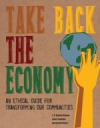
|
| Beyond the Business Case: A Community Economies Approach to Gender, Development And Social Economy In this paper we explore how international development discourse has placed women at the center of a "smart economics" approach to economic development. While we are heartened by development discourse's new found interest in economies of care and social reproduction, we are troubled by the way that an essentialized conception of gender is attached to a economic growth as usual agenda. We explore the potential of theory of the community economy, with its emphasis on the moment of ethical decision, might serve to unsettle essentialist categories of gender while redirecting the aims of the development process. |
| Warm Bodies: Zom-Rom Solidarity Econ A review of the film Warm Bodies (2013), a dark-comedy featuring zombies and romance. We read Warm Bodies as inhabiting today's growing social imaginary and belief that even amidst growing inequalities, austerity and unfolding ecological challenges, another world is truly possible. |
| The Progressive Struggle to Save Capitalism In this editorial we review Joseph Stiglitz's Price of Inequality. While we admire his analysis of the problems caused by economic inequality, we question whether or not the argument for progressive, regulated capitalism is the best thing we can hope for and work towards. |
| Occupy Wall Street: A Gift for the Economy Written in the early weeks of the Occupy movement, this short essay understands Occupy as reflecting and releasing dormant and suppressed economic values from which to imagine and practice a new world. |
| Cooperation, Surplus Appropriation, and the Law's Enjoyment This paper explores the performative effects of law legal incoporation in the context of worker cooperatives internally governed through consensus, concluding that this representational disjuncture has particular effects on cooperative subjectivity. |
| Traversing Fantasies, Activating Desires: Economic Geography, Activist Research and Psychoanalytic Methodology This article reviews the growing body of literature produced by geographers who make use of psychoanalytic theory in the course of their research, before considering how Left Lacanian theory was deployed in diverse economies research. |
| Alternative Economies This article reviews current literature within geography focused on alternative economies, a term that has contradictory effects in a discipline fixated on a realist imagining of the link between 'capitalism" and state through neoliberal governance. |
| Caring for Ethics and the Politics of Health Care Reform Informal caregiving frequently exacts a heavy psychic and physical toll on subjects that perform it while simultaneously figuring as a source of deep ethical meaning, raising questions about how to account for both dimensions in a politics of health care reform. |
| Building Community Economies: A Postcapitalist Project of Sustainable Development This chapter explores how the idea of sustainable development might be transformed from an impossible dream (sabotaged at every turn by the force various identified as 'capitalism," 'the market," 'modernization," and 'development") into a realistic and attainable project for organizations and communities. |
| Care In the Community Economy: Towards and Alternative Development of Health Care The politics of health care reform in the US in the United States has focused for 100 years on the question of whether health care is a commodtiy or right: beyond this political deadlock it is possible to reform care through attention to the conditions under which care is produced as a value and the ethical relation that transpires between care provider and patient. |
| Co-operative Subjects: Towards a Post-Fantasmatic Enjoyment of the Economy This paper co-written with Ken Byrne uses the psychoanalytic concept of fantasy to explore how people are attached to particular notions of economy. We explore how worker cooperators in Argentina's newly formed worker cooperatives experience their economic subjectivity. |
| Constructing the Community Economy: Civic Professionalism and the Politics of Sustainable Regions Outlines the Rethinking Economy action research project in the Pioneer Valley of Massachusetts, highlighting the role of academy-community partnerships in constructing community economies. |

